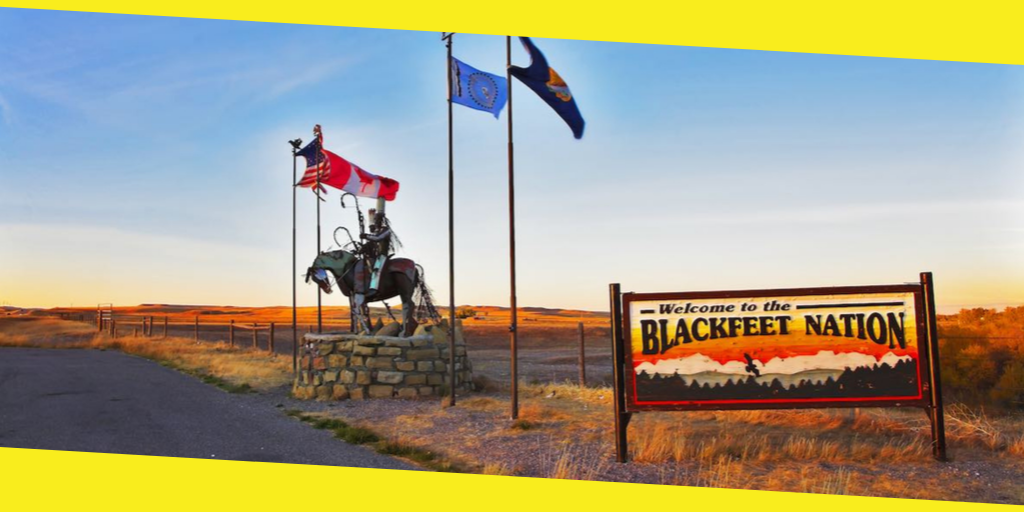Native American Tribes Face Hurdles Regarding Cannabis

Native American’s have faced unique challenges and struggles since before the founding of the United States. In the age of growing cannabis support, legalization, and farming, how are Native groups affected?
Issues Around Native Cannabis
Cannabis and hemp farming is seeing a rise in popularity across the nation. However, for some Native American tribes, the production of hemp and cannabis is nothing new.
One of the earlier tribes to grow hemp is the Oglala Sioux nation, one of the subtribes of the Lakota people. Predominantly based out of Pine Ridge Indian Reservation in South Dakota, the Oglala Sioux nation started hemp production in 1998. This effort was soon shut down by federal authorities.
Alex White Plume, the former president of the Oglala Sioux tribe, and his family were paramount in the push for hemp farming around their reservation, but since the feds raided and chopped down their plants, the White Plume family is one of many Indian families to be stifled by the United States government in relation to cannabis and hemp growth.
Despite being allowed to dictate their own laws and regulations, American Indian tribes see hurdles regarding cannabis. In 2014, the Wilkinson memo stated that tribes would not face any distinct differences in regard to cannabis that legal marijuana states faced. This was great news, as a 2012 census found that Native American farmland is estimated to be around 50 million acres. Agricultural exports from reservations were pegged at around $1 billion. The regulation of marijuana farming and sales would be up to tribe leaders, and as long as the tribes kept everything in order the federal government said that they would stay out. A true win-win for all involved.
This changed over the past few years, however.
In California, for instance, reservations are not being allowed to dole out the proper business permits that would allow state cannabis licenses. In order to do so, the reservation must give up power to the state—a clear violation of Native American tribal rights. That being said, the US is no stranger to contradicting its own legislation.
Dealings between tribes in multiple states—Washington, Oregon, California, Nevada—and the state governments are seeking to fix these issues, but the battle is still an uphill one. History has shown time and time again that Native Indians are often overlooked by states and the federal government. Problems are swept under the rug, and the voices of Native people are regularly not given the platform needed for there to be true representation. In the legal marijuana world, the struggle is no different.
But what plays the biggest role in keeping Native American tribes from gaining access to the growing cannabis market?
An Institutional Problem
The answer, in part, is institutional racism.
Discrimination against Native American Indians is as old as the United States itself. From the literal genocides by European explorers on Native tribes to the Trail of Tears and more, Native American Indians have faced some of the darkest tribulations of any population in the continental United States. As we approach 2020, the outlook may look better, but there is still much work to be done to bring American Indians to the level playing field that they are due.
The statistics surrounding marijuana arrests in Washington state only amplify the already common knowledge of institutional racism against tribes. Native Americans make up 25% of marijuana arrests, and they are arrested at 1.6 times the rate of whites. And that’s only a single state. The numbers are clearly not in favor of equality, and while crime rates from specific reservations are difficult to obtain, crimes against Native Americans remain higher than the national average.
The solving of these apparent and blatant issues would take more than just kind words and minor policy changes. An entire educational change from the ground up is required to teach acceptance of all individuals regardless of race, creed, gender, sex, and so on. How this relates to marijuana is clear, too: absolute empathy and true legal equality will grant Native Americans the same protections that states give non-native marijuana business operators, farmers, and the like. A change in the federal legal status of marijuana will certainly help.
You may like this
Recommended For You
The Role of Small Businesses in the U.S.
Most Inside
Most Inside offers high-quality recommendations and valuable updates to enhance all aspects of your life, providing premium guidance and enriching experiences.




